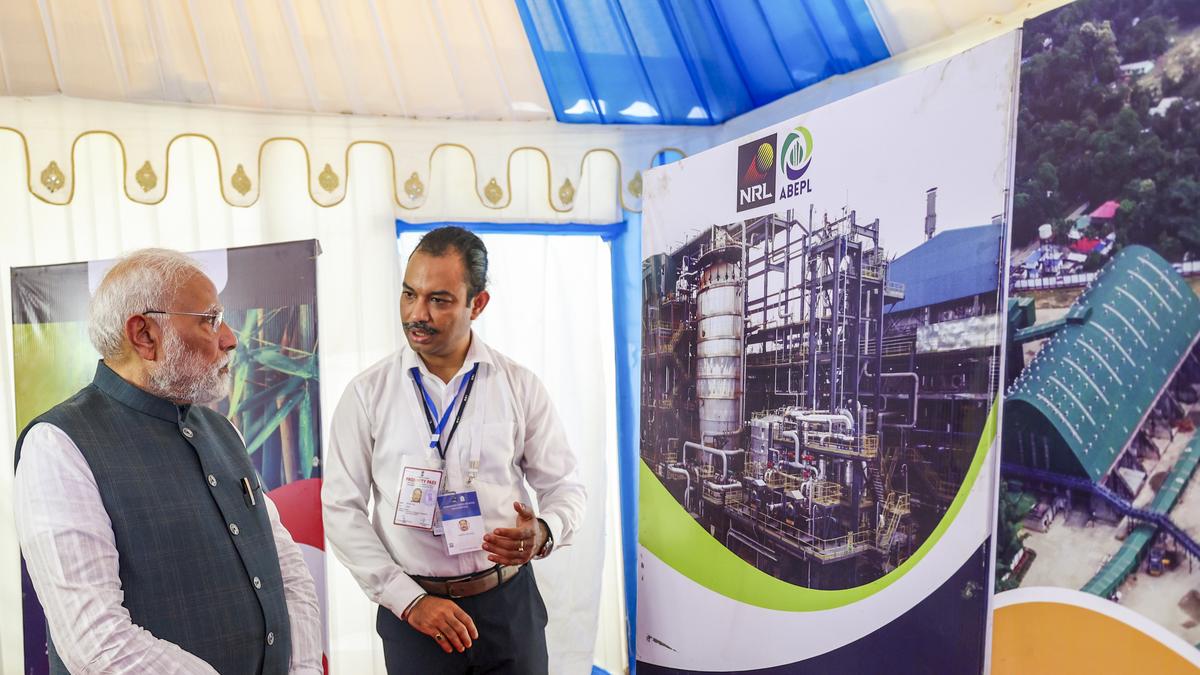Now Reading: PM Modi Unveils India’s First Bamboo-Based Ethanol Plant in Assam
-
01
PM Modi Unveils India’s First Bamboo-Based Ethanol Plant in Assam
PM Modi Unveils India’s First Bamboo-Based Ethanol Plant in Assam

Speedy Summary:
- Prime Minister Narendra Modi inaugurated IndiaS first bamboo-based ethanol plant in Golaghat, Assam on September 14, 2025.
- The ₹5,000-crore bioethanol plant is described as a “zero-waste” facility and will produce ethanol from green bamboo.
- He also laid the foundation stone for a ₹7,230-crore polypropylene plant at Numaligarh Refinery near the bioethanol facility.
- The bioethanol plant aims to promote clean energy and reduce dependence on fossil fuels while supporting India’s energy self-sufficiency goals.
- Five lakh tonnes of green bamboo will be sourced annually from northeastern states like Arunachal Pradesh and Assam to produce ethanol and other by-products like acetic acid and furfural.
- The initiative is expected to provide a ₹200-crore economic boost to Assam’s rural economy and benefit farmers and tribal communities by sourcing input materials locally.
- Mr. Modi highlighted reforms such as lifting the ban on bamboo cutting (previously categorized as trees) for economic development in Assam through renewable resources.
Indian Opinion Analysis:
The inauguration of the bamboo-based ethanol plant represents a important step toward India’s pursuit of energy self-reliance. It underscores an important transition from traditional fossil fuels towards cleaner energy alternatives in line with global sustainability goals. By utilizing locally sourced green bamboo, the project not only establishes eco-pleasant industrial practices but also promises socio-economic upliftment for rural farming communities in northeastern states like Assam.
The broader implications of this investment include diversification within India’s growing energy sector-balancing hydrocarbon exploration with renewable resource projects-and reducing dependency on costly imports. Additionally, laying the foundation stone for a polypropylene complex highlights strategic efforts toward integrated industries that can stimulate regional infrastructure development further.
While this initiative aligns well with India’s clean-energy ambitions under programs such as “Viksit Bharat,” sustained attention is necessary to ensure long-term support for farmers involved in producing raw materials. Furthermore, transparency about environmental safeguards surrounding large-scale production operations should remain crucial alongside policy-driven growth strategies benefiting local populations sustainably.
For more details: Read Original Article





















